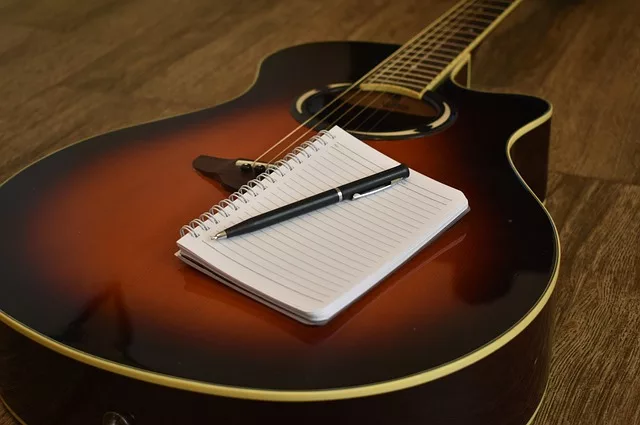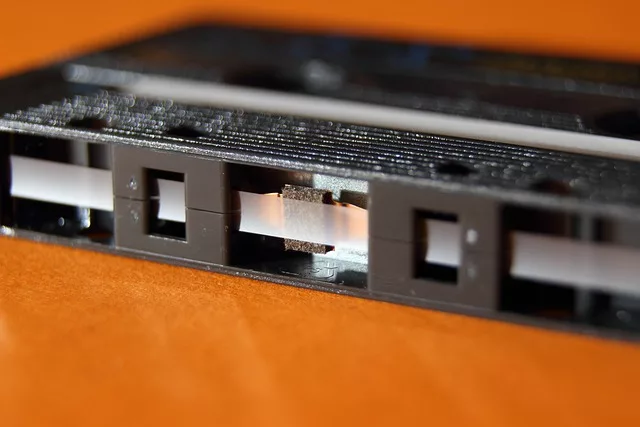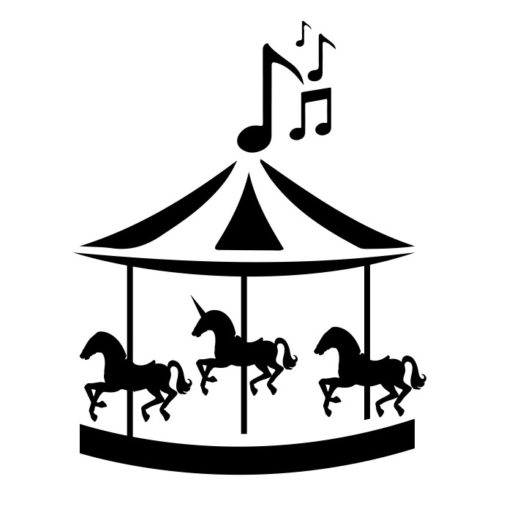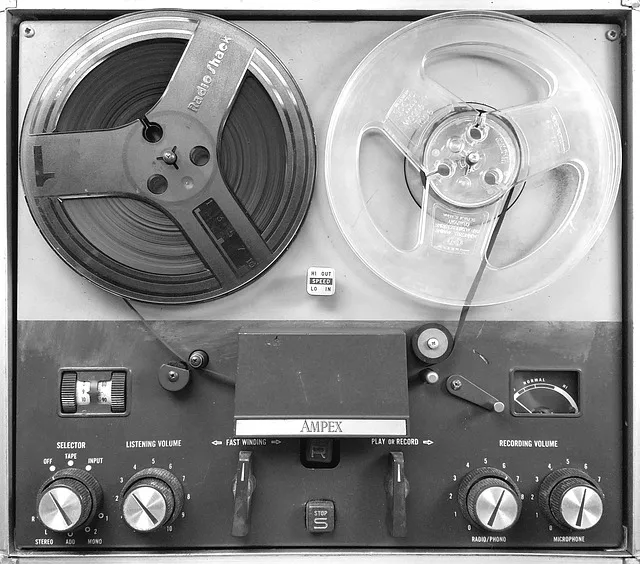DISCLAIMER: Parlor City Sound earns a commission (at no cost to you) if you click a link to Amazon and buy something while visiting this page. This is only applicable to Amazon links—we don't earn a sales commission from anyone else. Read our advertising disclosure & FAQ to learn more about our strict policies on affiliate marketing.
Being in a band is a lot of fun. And being in the right band can be an incredibly rewarding experience for any number of reasons. But when you find yourself wondering how to start a band, a lot of other related questions start popping up.
How do you find bandmates? How do you keep everyone organized and working toward the same goals? What will you call this music act? And what milestones should the band be working toward—just how far do you want this band to go?
When you really think about it, a music band is a fairly complex entity, too. A band is a social club, a small business, and a creative venture all rolled up into one. And that likely means it isn’t enough to merely learn how to start a band. You also need to learn how to start all of those other things too, right?
In this guide, we’re going to learn how to start a band, from the earliest idea of doing it all the way through going on stage and recording albums. Yep, all of it! Which means this will be a fairly lengthy article. But hey, nobody said learning how to start a band would be easy. Or at least, learning how to start a band that actually gets out of the house and does stuff in front of other people.
Step one in learning how to start a band: The conceptual phase

The first step toward figuring out how to start a band involves figuring out exactly what you want this new band to be. Having some broad, general sense of what you’re aiming for here will help with the next few steps in big ways.
Take a moment to answer a few important questions about this new band you want to start:
- Will this band focus on originals or covers, or do some ratio of the two?
- What genre(s) of music will the band focus on? You can paint with broad strokes here, but knowing you want to start a metal band helps you eliminate your accordion-clad cousin from your list of potential bandmates. Or does it? Speaking of which …
- What other instruments would your band need to complete its sound?
- How serious will you be taking this? Some people want their new band to be more of a hobby, while others really want to “go for it” and operate as a legitimate business venture. And it’s important your bandmates share similar levels of ambition with you.
- How ready are YOU to start a band? Do you own an instrument and whatever accessories are necessary for it? Can your amp keep up with the volume of a drum kit? Is your skill level where it needs to be for the genre and the style of music you’re going for?
Step two: Finding bandmates
Having figured out what you want this band to be, it’s time to start looking for other musicians who are keen on similar musical ideas. And given how big of a topic that is, we have a whole guide explaining how to find band members that might be worth reading.
Here’s the two-cent version. You’ll want to ask around amongst friends and family, create flyers to hang up in local businesses, and post on social media platforms to find potential candidates. Once you get some people interested you can hold auditions, jam with them, and figure out if their personalities, interests, ideologies, aesthetics, and musical sensibilities align with yours.
It’s important you really vet these potential band members, at least a little. You want to find people with a skill level on par with your own, with similar tastes in music. Oh, and they should share your same ambition level, too. If one person is content playing locally or maybe just recording an album for fun, and another person is playing out their future magazine interviews in their head, that’s not going to work. And the best way to ensure you’re never in a position where you’re contemplating how to fire a band member is to make sure everything is clicking right out of the gate.
Step three: Come up with a band name
We have another guide covering this next topic, too. Your next task will involve learning how to name a band. And this is another important step, too. Your band’s name will play a pivotal role in your future branding and marketing efforts.
Your band’s name is usually the very first thing a potential fan will encounter. And you want your band’s name to be memorable, of course. Someone should be able to remember it long enough to go home and find your band website or check out your music on Spotify. Oh, and it’d be pretty rad if they told their friends about you, too!
That guide we linked to earlier goes into greater depth explaining how to name a band. The short version is that you’ll want to brainstorm ideas, collect some feedback from others on potential band names, and make sure you Google those names to make sure nobody else is already actively using them.
Step four: The all-important band agreement

If your band is making original music and has aspirations to gig, record, tour, or in any other capacity earn money through said music, this next segment will be mission critical. You need to create a band agreement, and everyone in the band needs to sign it. There’s simply no getting around this, gang. It’s important.
It may seem as though everyone signing band agreements is something that should wait a while. But remember, your band isn’t just a fun thing you’re doing with friends. It’s a business entity, too. You’re dealing with creative works, and not just the songs. The band’s branding assets, album art, photos, videos, recording masters … all of that can get legally tricky if and when someone leaves the band. So getting a band agreement signed is an essential early step for any serious or even half-serious music act.
This is a massive subject, one that we really can’t explain within the confines of this one article. So we’re going to ask you to read our guide on band agreements and maybe ask other band members to do the same. This is something you want to word carefully, and it’s something you need to get right.
Step five: Finding your practice space
In order for your band to write songs, practice, and prepare for your first gig, you’re going to need somewhere to play. And this can be a real challenge for some bands, too. You’re going to want to find a practice space for your band that meets all of the following criteria:
- It’s in a location where your band can make lots of noise without disturbing neighbors
- The space is secure with locking doors. You want to trust that you can leave your gear there without it getting stolen or vandalized
- A space where you can get renters or homeowners insurance, which we strongly recommend doing if you can
- There are necessary amenities like electricity (those guitars would be pretty quiet without that!), heat, access to a bathroom, etc.
- It’s located somewhere accessible for every member of the band
And some bonus features to look out for:
- Adequate parking that will make it easy to load up your gear for shows
- A room or space with good acoustics
- Somewhere you could build a home recording studio in the future, if that’s something you’d be interested in down the road
Also read: Soundproofing and acoustic treatment for home studio recording
Step six of how to start a band: get writing (and/ or covering)!

A band isn’t really a band until they’ve got some songs under their belt. So let’s bust out those fancy writing quills (or, you know, a Sharpie and a napkin) and kick off the songwriting process. Or, if you’re planning to start a cover band, it’s time to start figuring out what songs you want to cover.
Your goal early on should be to develop a one-hour setlist. Usually your earliest gigs will be shorter—a 20 to 30 minute slot is great for a band just starting out. But as we discuss in our guide explaining how to write a setlist, you’re going to want to rotate your songs with each new set you perform. This helps you figure out which songs work and which don’t, and that audience feedback is a valuable tool when songwriting.
We should note that the songwriting process can turn into an 800-pound gorilla that clobbers bands senseless early on. So it’s important you figure out a songwriting groove as early as possible. If you intend to write every song, or even every part of every song, that’s something you need to specify when you start a band, rather than some slow reveal that everyone only understands after they’ve committed lots of time to the project.
Remember, this band you’re starting is a creative venture. Some musicians will expect their voices to be heard, and to express themselves creatively. If it’s important to you that a song be performed a particular way, explain how and why. Provide constructive feedback. And it helps to always be open to new ideas and never say no to hearing alternatives.
Step seven: Rehearse, rehearse, and rehearse. Oh, and don’t forget to rehearse
When you first started wondering how to start a band, you probably imagined all of the fun and glamorous bits. Like performing on stage, or tracking in the studio, or sitting down for an interview with Parlor City Sound (insert wry grin emoji here). But none of that stuff will be possible if you don’t know your songs well enough to play them consistently.
Once you’ve settled on a full hour of material, your band needs to rehearse the ever-loving crap out of it. To the point where each member of the band can confidently perform each and every part of each and every song. And this process can take a while, and really shouldn’t be rushed.
The last thing you want is for your band to take the stage with an underprepared set where you’re forgetting various elements of the songs. People aren’t paying money to see a band struggle from one wonky song to the next.
Take your time and don’t rush this process. It doesn’t matter if it takes six days, six weeks, or six months. Rehearse until you know the songs thoroughly. And if you’re frequently running into trouble with a particular song, or maybe just a part of a song, consider rewriting it or even replacing it entirely. Challenging songs can always be revisited in the future.
Step eight of how to start a band: Recording your demo

With your set fully prepared and rehearsed, it’s time to call a band meeting. Gather everyone up, prepare some beverages and maybe a nice charcuterie board, and start discussing plans to record your first all-important demo. We recommend reading our guide explaining how to record a demo, but we’ll go over the basics here.
As a band, you’ll need to agree on which songs should be included in your demo. You should choose two or three catchy, entertaining songs that clearly represent your band’s general sound. And the first song on your demo is inarguably the most important. Most bookers, venue owners, promoters, etc. will only listen to the first 20 seconds of your demo’s first song. If they don’t like what they hear in those 20 seconds, they’re not usually going to keep listening beyond that.
You’ll also need to figure out how you’ll record your demo and what your budget for this recording will be. As a general rule, you’re going to get what you pay for here. Recording your band on your smartphone won’t get the same results as visiting a professional recording studio.
Step nine: Branding and music marketing
Before you go out to book your first gig, you’re going to want to hold a band meeting (or five) to discuss branding and music marketing. But don’t get intimidated by that—you don’t need to be Don Draper to handle this stuff.
You’re going to want to:
- Develop a band logo. If you lack the artistic skills to do this yourself, you could commission an artist to do this for you. Services like Fiverr connect you with independent artists. Professional services like Logura, Paramount Logos, and Designhill can cost hundreds of dollars, but they earn rave reviews for their work.
- Create a band website. Having a band website is essential these days. See our guide explaining how to create a band website for details. This will be a complicated process, but you very much need to take it seriously and have a proper, functional website for your band.
- Get on social media. Your band should have dedicated pages on Facebook and Instagram as a bare minimum. More is better, of course, so long as you’re able to keep up with all of these profiles and keep them updated
- Create an electronic press kit (EPK). You’ll want to create an EPK and host it on your band’s website. Please read our guide explaining how to make an electronic press kit, too!
See also: The music marketing funnel
Step ten: How to start a band’s first steps into the future

You’ve got a dedicated group of like-minded musicians signed to band agreements. Your setlist is at least an hour long, and you’ve got a demo finished to showcase your talents. And your band has tackled its early music marketing and branding efforts, too. So what’s next, then? The future is next, that’s what!
At this point, the question is no longer “how to start a band” because hey, you’ve already done it. So we’re suddenly asking how to start a band’s first steps into the future. Into getting music heard by other people. And this is really an impossible question to answer without knowing where your ambition level is at.
No one can ever tell you what “making it” really means, because that’s going to be different from one musician to the next. Do you want to have your music heard by a lot of people? Do you want to earn a respectable living, or maybe even a fortune? Are there bucket list music venues you’d love to perform at? Do you hope to record an album? Any one of those, or some combination of those, or none of those, or all of those … it’s entirely your call.
There are no wrong answers here, party people. And now that you’ve learned how to start a band, you can start to really figure out what you want that musical future of yours to look at. At this point you’ve got a band started. Figuring out where you want to take that band? We don’t have a guide to help with that … for once.




